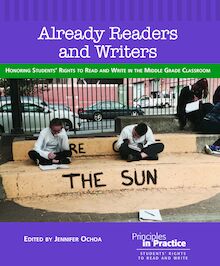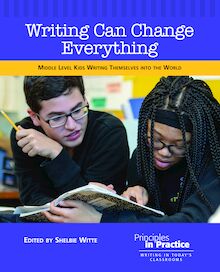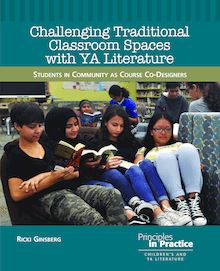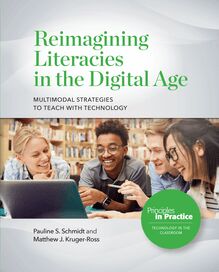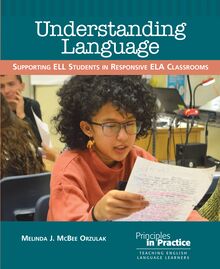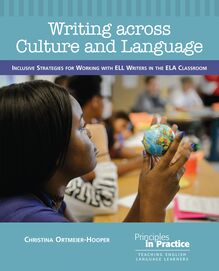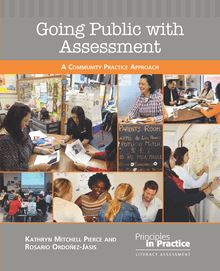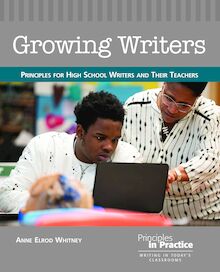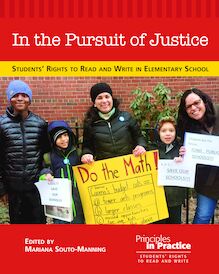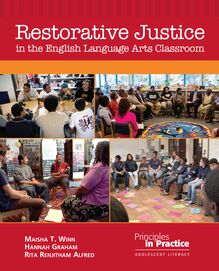-
 Univers
Univers
-
 Ebooks
Ebooks
-
 Livres audio
Livres audio
-
 Presse
Presse
-
 Podcasts
Podcasts
-
 BD
BD
-
 Documents
Documents
-
- Cours
- Révisions
- Ressources pédagogiques
- Sciences de l’éducation
- Manuels scolaires
- Langues
- Travaux de classe
- Annales de BEP
- Etudes supérieures
- Maternelle et primaire
- Fiches de lecture
- Orientation scolaire
- Méthodologie
- Corrigés de devoir
- Annales d’examens et concours
- Annales du bac
- Annales du brevet
- Rapports de stage
La lecture à portée de main
Vous pourrez modifier la taille du texte de cet ouvrage
Découvre YouScribe en t'inscrivant gratuitement
Je m'inscrisGoing Public with Assessment , livre ebook
Découvre YouScribe en t'inscrivant gratuitement
Je m'inscrisEn savoir plus
Vous pourrez modifier la taille du texte de cet ouvrage
En savoir plus

Description
The authors share classroom vignettes, strategies, and resources for “going public” with literacy assessment through teacher collaboration with colleagues, with families, and with the community.
Teachers want assessment tools and strategies that inform instruction, engage students in the process, and invite families and community members to enter into the conversation about student learning and progress. When teachers work collaboratively with one another, they align beliefs and practices to generate new ideas that reflect the questions they are asking about literacy and learning. When students, families, and the community are invited to be active, engaged participants in these discussions, all stakeholders have an opportunity to create a shared vision for literacy learning and to construct assessment tools and strategies that help everyone answer the important questions: “How as teachers are we engaging with one another over our literacy assessment beliefs and practices?” and “How can we better bring families and communities into these conversations?”
In this volume of the Principles in Practice Literacy Assessment strand of books, veteran educators Kathryn Mitchell Pierce and Rosario Ordoñez-Jasis share classroom vignettes, strategies, and resources for “going public” with literacy assessment through teacher collaboration with colleagues, with families, and with the community. Drawing from the IRA–NCTE Standards for the Assessment of Reading and Writing, Revised Edition, and their own extensive experience, the authors have compiled a set of collaborative assessment principles, as well as a model for teacher professional development around assessment, to guide teachers from assessment theory to practical implementation in the classroom.
Teachers are at the heart of assessment conversations because they have up-close and personal experiences with how assessments impact their students. These experiences provide an invaluable perspective that is essential to all decision making about assessing student learning. But teachers don’t—or shouldn’t—stand alone. Their critical expertise is strengthened by the experiences and expertise of others invested in the success of our students—colleagues, families, communities, and students themselves.
Sujets
Informations
| Publié par | National Council of Teachers of English (NCTE) |
| Date de parution | 26 septembre 2018 |
| Nombre de lectures | 0 |
| EAN13 | 9780814100493 |
| Langue | English |
Informations légales : prix de location à la page 0,1250€. Cette information est donnée uniquement à titre indicatif conformément à la législation en vigueur.
Extrait
Dear Reader,
As a former high school teacher, I remember the frustration I felt when the gap between Research (and that is, by the way, how I always thought of it: Research with a capital R ) and my own practice seemed too wide to ever cross. Research studies—those sterile reports written by professional and university researchers— often seemed so out of touch with the issues that most concerned me when I walked into my classroom every day. These studies were easy to ignore, in part because they were so distant from my experiences and in part because I had no one to help me see how that research could impact my everyday practice.
Although research has come a long way since then, as more and more teachers take up classroom-based inquiry, this gap between research and practice unfortunately still exists. Quite frankly, it's hard for even the most committed classroom teachers to pick up a research article or book, figure out how that research might apply to their classroom, convince their administrators that a new way of teaching is called for, and put it into practice. While most good teachers instinctively know that there is something to be gained from reading research, who realistically has the time or energy for it?
That gap informs the thinking behind this book imprint. Called Principles in Practice, the imprint publishes books that look carefully at the research-based principles and policies developed by NCTE and put those policies to the test in actual classrooms. The imprint naturally arises from one of the strong missions of NCTE: to develop policy for English language arts teachers. Over the years, many NCTE members have joined committees and commissions to study particular issues of concern to literacy educators. Their work has resulted in a variety of reports, research briefs, and policy statements designed both to inform teachers and to be used in lobbying efforts to create policy changes at the local, state, and national levels (reports that are available on NCTE's website, www.ncte.org ).
Through this imprint, we are creating collections of books specifically designed to translate those research briefs and policy statements into classroom-based practice. The goal behind these books is to familiarize teachers with the issues behind certain concerns, lay out NCTE's policies on those issues, provide resources from research studies to support those policies, and—most of all—make those policies come alive for teacher-readers.
This book is part of the third series in the imprint, a series that focuses on literacy assessment. Each book in this series highlights a different aspect of this important topic and is organized in a similar way: immersing you first in the research principles surrounding the topic (as laid out in the IRA–NCTE Standards for the Assessment of Reading and Writing, Revised Edition) and then taking you into actual classrooms, teacher discussions, and student work to see how the principles play out. Each book closes with a teacher-friendly annotated bibliography.
Good teaching is connected to strong research. We hope that these books help you continue the good teaching that you're doing, think hard about ways to adapt and adjust your practice, and grow even stronger in the vital work you do with kids every day.
Best of luck,
Cathy Fleischer
The Principles in Practice imprint offers teachers concrete illustrations of effective classroom practices based in NCTE research briefs and policy statements. Each book discusses the research on a specific topic, links the research to an NCTE brief or policy statement, and then demonstrates how those principles come alive in practice: by showcasing actual classroom practices that demonstrate the policies in action; by talking about research in practical, teacher-friendly language; and by offering teachers possibilities for rethinking their own practices in light of the ideas presented in the books. Books within the imprint are grouped in strands, each strand focused on a significant topic of interest.
Adolescent Literacy Strand
Adolescent Literacy at Risk? The Impact of Standards (2009) Rebecca Bowers Sipe
Adolescents and Digital Literacies: Learning Alongside Our Students (2010) Sara Kajder
Adolescent Literacy and the Teaching of Reading: Lessons for Teachers of Literature (2010) Deborah Appleman
Rethinking the “Adolescent” in Adolescent Literacy (2017) Sophia Tatiana Sarigianides, Robert Petrone, and Mark A. Lewis
Writing in Today's Classrooms Strand
Writing in the Dialogical Classroom: Students and Teachers Responding to the Texts of Their Lives (2011) Bob Fecho
Becoming Writers in the Elementary Classroom: Visions and Decisions (2011) Katie Van Sluys
Writing Instruction in the Culturally Relevant Classroom (2011) Maisha T. Winn and Latrise P. Johnson
Literacy Assessment Strand
Our Better Judgment: Teacher Leadership for Writing Assessment (2012) Chris W. Gallagher and Eric D. Turley
Beyond Standardized Truth: Improving Teaching and Learning through Inquiry-Based Reading Assessment (2012) Scott Filkins
Reading Assessment: Artful Teachers, Successful Students (2013) Diane Stephens, editor
Going Public with Assessment: A Community Practice Approach (2018) Kathryn Mitchell Pierce and Rosario Ordoñez-Jasis
Literacies of the Disciplines Strand
Entering the Conversations: Practicing Literacy in the Disciplines (2014) Patricia Lambert Stock, Trace Schillinger, and Andrew Stock
Real-World Literacies: Disciplinary Teaching in the High School Classroom (2014) Heather Lattimer
Doing and Making Authentic Literacies (2014) Linda Denstaedt, Laura Jane Roop, and Stephen Best
Reading in Today's Classrooms Strand
Connected Reading: Teaching Adolescent Readers in a Digital World (2015) Kristen Hawley Turner and Troy Hicks
Digital Reading: What's Essential in Grades 3–8 (2015) William L. Bass II and Franki Sibberson
Teaching Reading with YA Literature: Complex Texts, Complex Lives (2016) Jennifer Buehler
Teaching English Language Learners Strand
Beyond “Teaching to the Test”: Rethinking Accountability and Assessment for English Language Learners (2017) Betsy Gilliland and Shannon Pella
Community Literacies en Confianza: Learning from Bilingual After-School Programs (2017) Steven Alvarez
Understanding Language: Supporting ELL Students in Responsive ELA Classrooms (2017) Melinda J. McBee Orzulak
Writing across Culture and Language: Inclusive Strategies for Working with ELL Writers in the ELA Classroom (2017) Christina Ortmeier-Hooper
NCTE Editorial Board: Steven Bickmore, Catherine Compton-Lilly, Deborah Dean, Bruce McComiskey, Jennifer Ochoa, Anne Elrod Whitney, Vivian Yenika-Agbaw, Kurt Austin, Chair, ex officio, Emily Kirkpatrick, ex officio
Staff Editor: Bonny Graham
Series Editor: Cathy Fleischer
Interior Design: Victoria Pohlmann
Cover Design: Pat Mayer
Cover Images: Phyllis Cook, April Fulstone, Rosario Ordoñez-Jasis, Kathryn Mitchell
Pierce, and Bridget Uribe
NCTE Stock Number: 18634; eStock Number: 18658
ISBN 978-0-8141-1863-4; eISBN 978-0-8141-1865-8
©2018 by the National Council of Teachers of English.
All rights reserved. No part of this publication may be reproduced or transmitted in any form or by any means, electronic or mechanical, including photocopy, or any information storage and retrieval system, without permission from the copyright holder. Printed in the United States of America.
It is the policy of NCTE in its journals and other publications to provide a forum for the open discussion of ideas concerning the content and the teaching of English and the language arts. Publicity accorded to any particular point of view does not imply endorsement by the Executive Committee, the Board of Directors, or the membership at large, except in announcements of policy, where such endorsement is clearly specified.
NCTE provides equal employment opportunity (EEO) to all staff members and applicants for employment without regard to race, color, religion, sex, national origin, age, physical, mental or perceived handicap/disability, sexual orientation including gender identity or expression, ancestry, genetic information, marital status, military status, unfavorable discharge from military service, pregnancy, citizenship status, personal appearance, matriculation or political affiliation, or any other protected status under applicable federal, state, and local laws.
Every effort has been made to provide current URLs and email addresses, but because of the rapidly changing nature of the Web, some sites and addresses may no longer be accessible.
Library of Congress Cataloging-in-Publication Data
Names: Pierce, Kathryn Mitchell, 1955- author. | Ordoñez-Jasis, Rosario, 1971- author.
Title: Going public with assessment : a community practice approach / Kathryn Mitchell Pierce, Rosario Ordoñez-Jasis.
Description: Urbana, Illinois : National Council of Teachers of English, 2018 | Includes bibliographical references and index.
Identifiers: LCCN 2018004763 (print) | LCCN 2018018828 (ebook) | ISBN 9780814118658 (ebook) | ISBN 9780814118634 (pbk) | ISBN 9780814118658 (ebk)
Subjects: LCSH: Educational tests and measurements—United States. | Students— Rating of—United States. | Community and school—United States. | Education— Parent participation—United States.
Classification: LCC LB3051 (ebook) | LCC LB3051.P573 2018 (print) | DDC 371.26—dc23
LC record available at https://lccn.loc.gov/2018004763
We dedicate this book to the courageous and generous teachers whose work has informed and inspired our commitment to collaborative literacy assessment.
Contents
Acknowledgments
Introduction
Excerpts from the IRA-NCTE Standards for the Assessment of Reading and Writing, Revised Edition
Part I…………………… Teachers Collaborating with One Another
Chapter 1 ……………… Collaborative Assessment Conversations: Aligning Beliefs and Practices
Chapter 2 ……………… Considering New Perspectives: Usin
-
 Univers
Univers
-
 Ebooks
Ebooks
-
 Livres audio
Livres audio
-
 Presse
Presse
-
 Podcasts
Podcasts
-
 BD
BD
-
 Documents
Documents
-
Jeunesse
-
Littérature
-
Ressources professionnelles
-
Santé et bien-être
-
Savoirs
-
Education
-
Loisirs et hobbies
-
Art, musique et cinéma
-
Actualité et débat de société
-
Jeunesse
-
Littérature
-
Ressources professionnelles
-
Santé et bien-être
-
Savoirs
-
Education
-
Loisirs et hobbies
-
Art, musique et cinéma
-
Actualité et débat de société
-
Actualités
-
Lifestyle
-
Presse jeunesse
-
Presse professionnelle
-
Pratique
-
Presse sportive
-
Presse internationale
-
Culture & Médias
-
Action et Aventures
-
Science-fiction et Fantasy
-
Société
-
Jeunesse
-
Littérature
-
Ressources professionnelles
-
Santé et bien-être
-
Savoirs
-
Education
-
Loisirs et hobbies
-
Art, musique et cinéma
-
Actualité et débat de société
- Cours
- Révisions
- Ressources pédagogiques
- Sciences de l’éducation
- Manuels scolaires
- Langues
- Travaux de classe
- Annales de BEP
- Etudes supérieures
- Maternelle et primaire
- Fiches de lecture
- Orientation scolaire
- Méthodologie
- Corrigés de devoir
- Annales d’examens et concours
- Annales du bac
- Annales du brevet
- Rapports de stage
